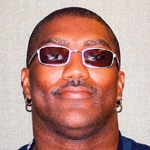 SEPTA and Port Authority employers are awaiting a decision to be made by the Pennsylvania Department of Transportation (PennDOT) on whether or not they can continue to ignore state law and keep drivers on the clock for shifts lasting up to 18 hours. SEPTA drivers can work up to 30 hours within a two-day period. Pennsylvania state law currently states that it is illegal for drivers to drive for more than 10 hours or work shifts longer than 15 hours. SEPTA employers frequently overlook this law.
SEPTA and Port Authority employers are awaiting a decision to be made by the Pennsylvania Department of Transportation (PennDOT) on whether or not they can continue to ignore state law and keep drivers on the clock for shifts lasting up to 18 hours. SEPTA drivers can work up to 30 hours within a two-day period. Pennsylvania state law currently states that it is illegal for drivers to drive for more than 10 hours or work shifts longer than 15 hours. SEPTA employers frequently overlook this law.
PennDOT was petitioned by the Port Authority as well as SEPTA to put in place a temporary waiver to the law. They are asking for a three-year waiver to the law and propose to work with PennDOT and Pa. legislators to amend the hours-of-service policy. Transit employers want the law changed to the same policy as rail transit drivers. The policy for rail transit drivers states that a driver can be scheduled to work up to 16 hours with no more than 14 hours of actual work during that span and at least 10 hours rest between shifts.
SEPTA and Port Authority argue that to obey the current law they would have to spend millions to hire enough drivers. SEPTA argues that to be in compliance, the city of Philadelphia would need to hire an additional 135 drivers at a cost of $4.7 million a year and a one-time training cost of $600,000. If additional drivers are not hired, SEPTA claims that they would have to cut service by four percent to be in compliance.
SEPTA asserts that sleep and public safety do not factor into this issue and are “unaware of any evidence to suggest that the long-standing practice of exempting Pennsylvania transit agencies from hours-of-service regulations presents any substantial risk to public safety.”
Sleep experts disagree. It is a well-known fact through numerous sleep studies that sleep has an effect on a person’s ability to perform. According to the National Sleep Foundation (NSF), “sleepiness/fatigue in the work place can lead to poor concentration, absenteeism, accidents, errors, injuries and fatalities.
People who work in the transportation industry face some of the most serious challenges. They battle fatigue because of their irregular sleep schedules and endure long tedious hours at the controls or behind the wheel. In fact, research suggests that driver fatigue behind the wheel caused by sleep deprivation is one of the leading safety hazards in the transportation industry.”
The foundation also states that the more tired you are, the more likely you are to experience what is called a “microsleep” which is an involuntary bout of sleep brought on by sleep deprivation that lasts for a few seconds.
PennDOT is expected to make a decision on this issue by the end of this month.
 The SMART Transportation Division (UTU) general committee of adjustment representing conductors and assistant conductors employed by Southeastern Pennsylvania Transportation Authority (SEPTA) has reached a tentative contract with the commuter railroad.
The SMART Transportation Division (UTU) general committee of adjustment representing conductors and assistant conductors employed by Southeastern Pennsylvania Transportation Authority (SEPTA) has reached a tentative contract with the commuter railroad. Suicide by rail is no stranger to operators of steel-wheel trollies on Southeastern Pennsylvania Transportation Authority’s Victory Division in suburban Philadelphia.
Suicide by rail is no stranger to operators of steel-wheel trollies on Southeastern Pennsylvania Transportation Authority’s Victory Division in suburban Philadelphia.